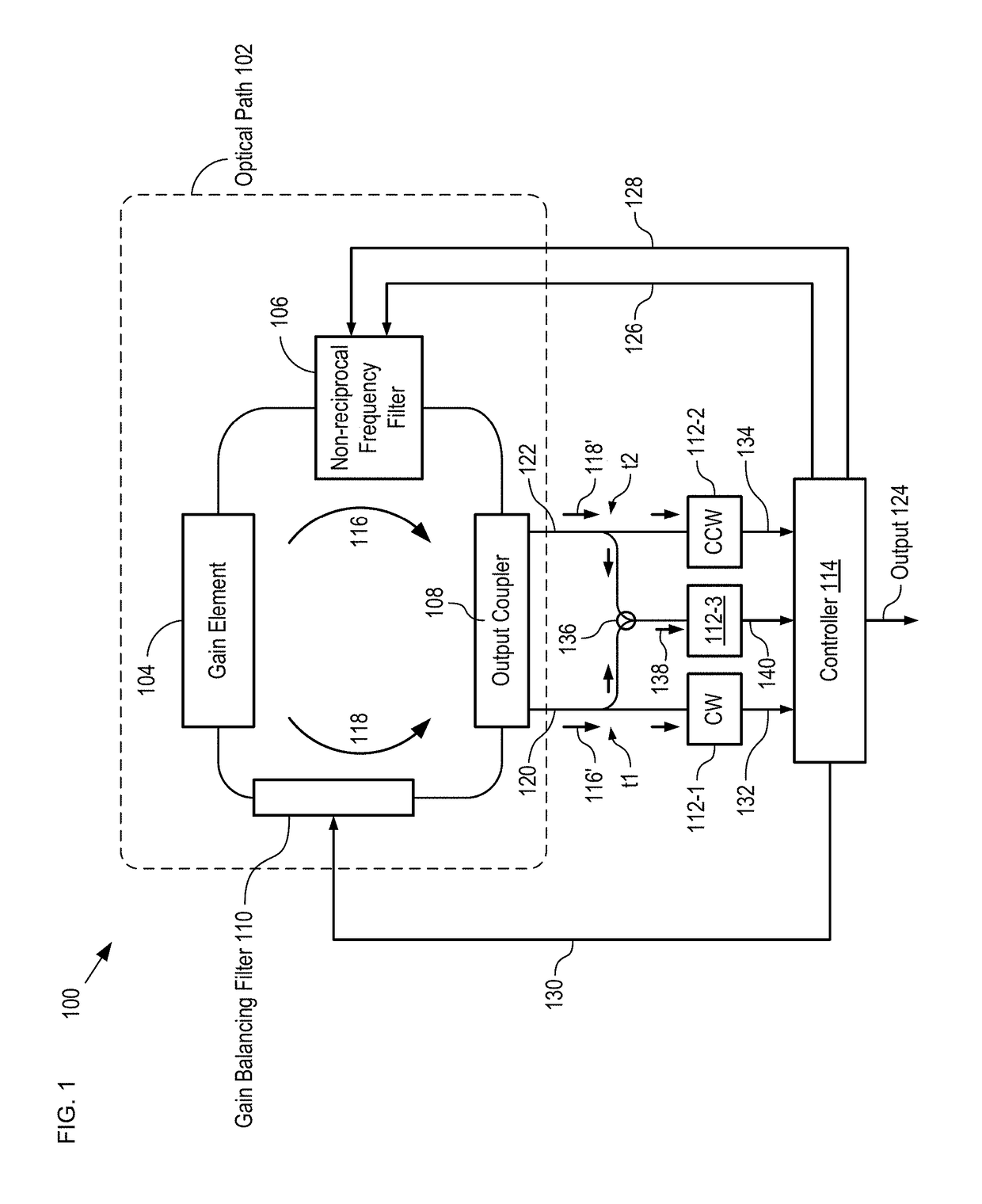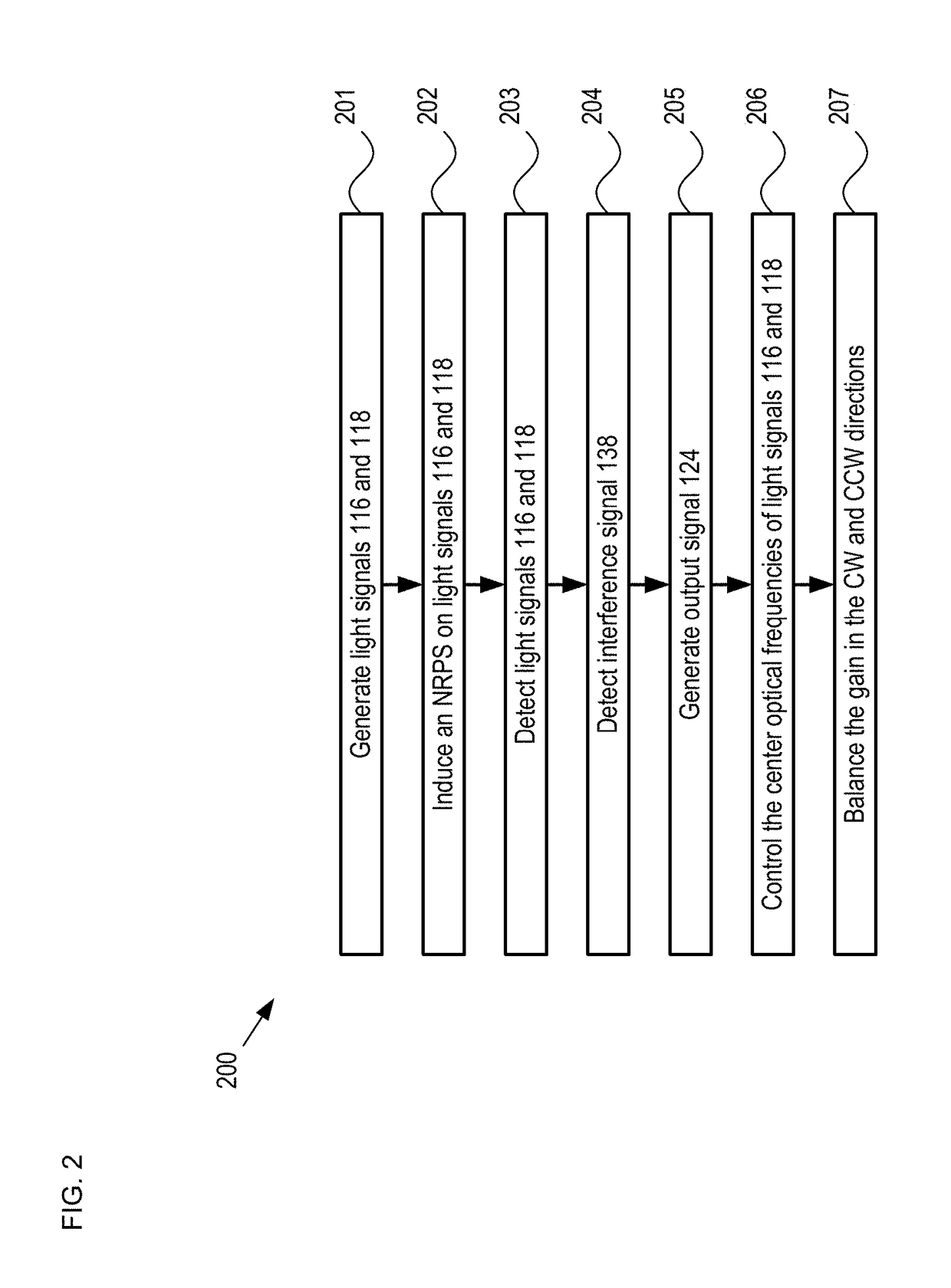Orthogonal-mode laser gyroscope
a laser gyroscope and orthogonal-mode technology, applied in the direction of the sagnac effect gyrometer, etc., can solve the problems of fiber optic gyroscopes, poor reliability, mechanical gyros that are typically quite large and massive, etc., to reduce or eliminate optical coupling, reduce or mitigate frequency lock-up
- Summary
- Abstract
- Description
- Claims
- Application Information
AI Technical Summary
Benefits of technology
Problems solved by technology
Method used
Image
Examples
Embodiment Construction
[0035]FIG. 1 depicts a schematic diagram of a ring-laser gyroscope in accordance with an illustrative embodiment of the present invention. RLG 100 comprises optical path 102, gain element 104, non-reciprocal frequency filter 106, output coupler 108, gain-balancing filter 110, detectors 112-1 through 112-3, controller 114, taps t1 and t2, and combiner 136.
[0036]FIG. 2 depicts operations of a method for detecting rotation in accordance with the illustrative embodiment of the present invention. Method 200 begins with operation 201, wherein RLG 100 generates light signals 116 and 118 in optical path 102. Method 200 is described herein with continuing reference to FIG. 1 as well as reference to FIGS. 3-5.
[0037]Optical path 102 is a closed-loop planar-lightwave circuit (PLC) comprising an integrated-optics waveguide formed as a substantially rectangular loop. The waveguide is optically coupled with each of optical gain element 104, non-reciprocal frequency filter 106, output coupler 108, ...
PUM
 Login to View More
Login to View More Abstract
Description
Claims
Application Information
 Login to View More
Login to View More - R&D
- Intellectual Property
- Life Sciences
- Materials
- Tech Scout
- Unparalleled Data Quality
- Higher Quality Content
- 60% Fewer Hallucinations
Browse by: Latest US Patents, China's latest patents, Technical Efficacy Thesaurus, Application Domain, Technology Topic, Popular Technical Reports.
© 2025 PatSnap. All rights reserved.Legal|Privacy policy|Modern Slavery Act Transparency Statement|Sitemap|About US| Contact US: help@patsnap.com



